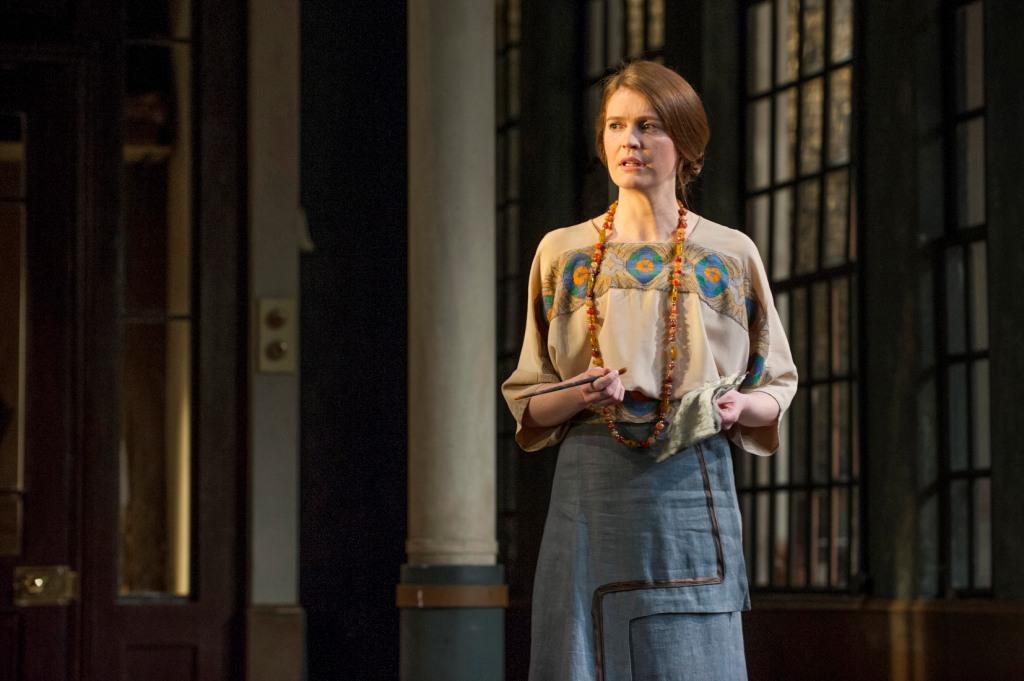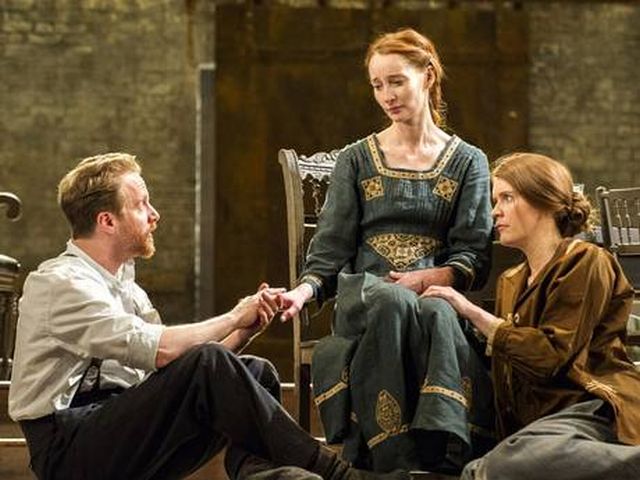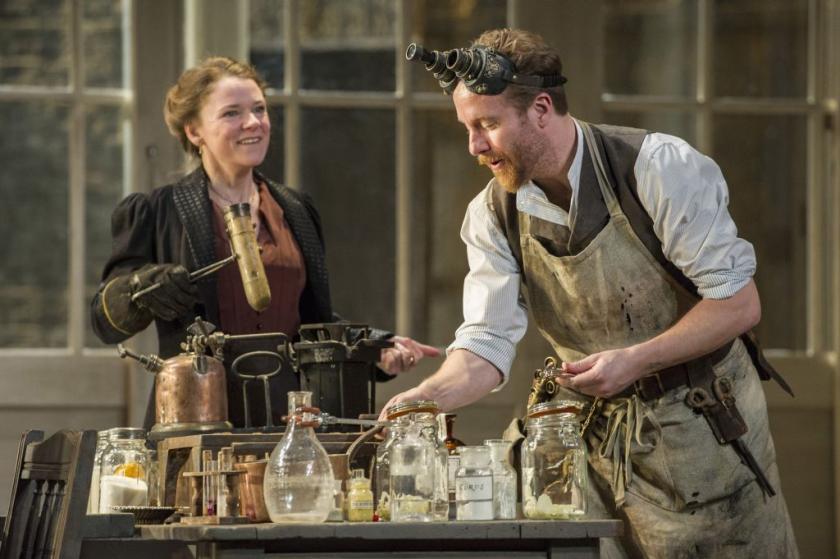They’re back, and this time it’s Gorky. Dream team director Howard Davies, translator Andrew Upton, designer Bunny Christie and lighting designer Neil Austin have repeatedly attached tragicomic jump-leads to the unfamiliar (Bulgakov’s The White Guard) and the well-worn (The Cherry Orchard) to explode the myth encapsulated by Ira Gershwin’s lyric: “I’ve found more clouds of grey/Than any Russian play could guarantee.” But despite the welcome return of their vision and some juicy performances, it’s increasingly obvious why they didn’t stage Children of the Sun before now.
With a lobby opening on to a reception area overlooking an inner courtyard, not to mention a fully-equipped chemist’s laboratory, a long corridor leading back towards bedrooms and another to servants’ quarters, Bunny Christie’s marvellously grand set has enough doors for the most intricate of farces. But in this daisy-chain of misalliances, hardly anyone is rushing: Gorky’s depiction of a family and its (mis)fortunes is a portrait of lassitude.
 Even the servants have noticed that Protasov’s frustrated wife Yelena (nicely calm Justine Mitchell, pictured right) is spending a suspicious amount of time with an artist intent upon living his profession’s amorous cliché. Protasov’s neurasthenic, Cassandra-like sister Liza (Emma Lowndes) is alternately rebuffing lovelorn Boris (droll, doom-laden Paul Higgins) and forecasting the political disaster that will surely engulf them. And Protasov himself, entirely wrapped up in doomed attempts to change the world via chemical experiment, is oblivious to the less-than-scientific advances being made by rich, single and increasingly desperate Melaniya.
Even the servants have noticed that Protasov’s frustrated wife Yelena (nicely calm Justine Mitchell, pictured right) is spending a suspicious amount of time with an artist intent upon living his profession’s amorous cliché. Protasov’s neurasthenic, Cassandra-like sister Liza (Emma Lowndes) is alternately rebuffing lovelorn Boris (droll, doom-laden Paul Higgins) and forecasting the political disaster that will surely engulf them. And Protasov himself, entirely wrapped up in doomed attempts to change the world via chemical experiment, is oblivious to the less-than-scientific advances being made by rich, single and increasingly desperate Melaniya.
So far, so headstrong. But everyone’s heartfelt protestations are taking place at a key historical moment: the luxury of idleness is about to end because it’s 1905. And with everything playing out against a backdrop of a vengeful town looking for a scapegoat as it reels from a cholera outbreak, it's a case of Chekhovian mismatch meets An Enemy of People.
On the page, Gorky’s axis of the personal and the political looks both modern and particularly attractive. The beautiful timing of Davies’s direction mines laughter out of a household replete with hangers-on and ripe with absurdity, with characters talking but rarely listening. On stage, however, Gorky’s even-handedness works against him. Despite the darkening second act as the outside world closes in, the play lacks cumulative drama because the multitude of plots don’t fully mesh. Thematically, it’s laudable to give so many people equal weight but the gradual feeling is of, you should pardon the pun, Sixteen Characters in Search of An Authorial Drive.
 Upton’s “new version” attempts to counterbalance this with studied and occasionally jolting anachronisms from contemporary swear-words to the painter Vageen’s complaint, “I have been duped. A stool pigeon in your petty soap opera.” (The term soap opera wasn’t coined until 1930). Further underlining the point, many of the men’s costumes and haircuts are more character- than period-specific. Together with the graffitied wall that opens each act, it indicates the unexpectedly heavy-handed straining towards “relevance” that disfigured the team’s The Cherry Orchard.
Upton’s “new version” attempts to counterbalance this with studied and occasionally jolting anachronisms from contemporary swear-words to the painter Vageen’s complaint, “I have been duped. A stool pigeon in your petty soap opera.” (The term soap opera wasn’t coined until 1930). Further underlining the point, many of the men’s costumes and haircuts are more character- than period-specific. Together with the graffitied wall that opens each act, it indicates the unexpectedly heavy-handed straining towards “relevance” that disfigured the team’s The Cherry Orchard.
The actors, however, consistently deliver the goods. Released at last from his young romantic hero mould, Streatfeild (pictured above left with Emma Lowndes and Mitchell) is comically precise as the baffled boffin whose dedication to the long-view covers dangerous short-sightedness where others are concerned. And, in a highly auspicious National Theatre debut, the more absurdly besotted Lucy Black’s Melaniya becomes the more touching she grows: “I didn’t read your books,” she confesses, “I licked them.”
The heat conveyed by the ensemble cast, Austin’s gleaming sunlight and the climatic coup de theatre that it would be unfair to reveal, create the kind of richly theatrical world unimaginable outside of subsidy. But there’s no escaping the fact that the beautifully detailed production is flattering the text.















Add comment